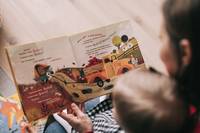Author Interviews, Education, Heart Disease, Technology / 02.10.2019
Parents and Toddlers Both Try to Control the Screen When Reading Together on a Tablet
MedicalResearch.com Interview with:
Tiffany G. Munzer, MD
Department of Pediatrics
University of Michigan Medical School
Ann Arbor
MedicalResearch.com: What is the background for this study?
Response: There’s been such a rise in the prevalence of tablet devices and the recommendation for families of young children has been to engage in media together because children learn the most from screens when they’re shared with an adult. However, little is known about how toddlers and adults might behave and interact using a tablet.
(more…)



